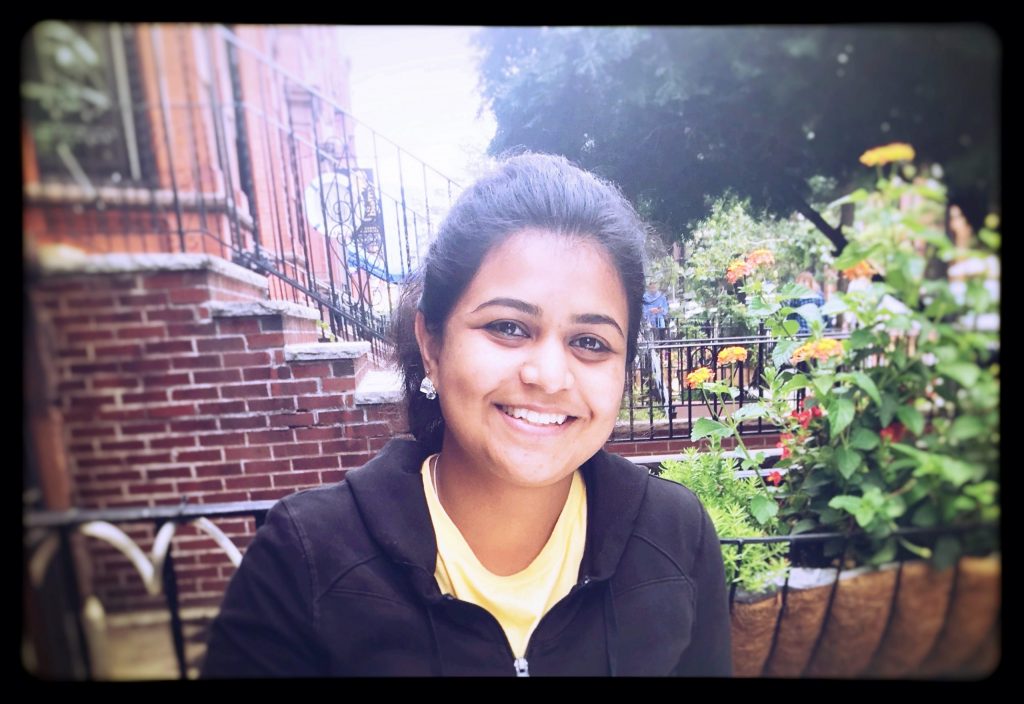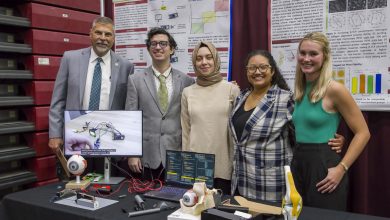Florida Tech Student Uses Machine Learning to Bring Clarity to COVID-19 Situation
A Florida Tech student has confirmed several key factors associated with COVID-19 after using machine learning to analyze data associated with the coronavirus-caused sickness.

Nandini Rakala, a Ph.D. candidate in operations research in the Department of Mathematical Sciences at Florida Tech working with research advisors Munevver Mine Subasi and Ersoy Subasi, used publicly available data from Johns Hopkins University’s Center for Systems Science and Engineering. The dataset used in this study had daily level information on the number of affected patients, deaths and recovery from coronavirus, along with other patient characteristics from Jan. 22 to March 31.
Rakala further pre-processed and staged the data as a machine learning problem, and her final dataset consisted of 667 people confirmed as having COVID-19.
Rakala, who is also currently an ORISE Research Fellow on a Predictive Analytics Fellowship at the U.S. Food and Drug Administration’s Center for Drug Evaluation and Research in the Washington, D.C. area, applied what are called Supervised Machine Learning Classification algorithms to classify this data into two binary groups – those who recovered from COVID-19 (491 people), and those who had died (176 people). This allowed her to assess the accuracy and interpret the predictive validity of the modeled data while analyzing patterns and key factors associated with COVID-19 patients.
“I wanted to apply recent advancements in mathematics and machine learning,” she said. “So, I trained the algorithm to learn from the data, building a predictive model.”
Rakala determined that five features contributed most substantially to the two outcomes she was studying:
- Chronic Disease
- Wuhan (within China) or Not in Wuhan (other countries)
- Days between symptom onset and COVID-19 confirmation
- Latitude and Longitude (geographical location of a place)
- Country: United States
Rakala found several important insights about these outcomes by further analyzing the patterns in the available data. Those included:
- 50 percent of those who have COVID-19, whether they recovered or died, had a combination of one or more of these diseases: hypertension, diabetes, asthma, and chronic kidney disease. This highlights how a weakened immune system is a major gateway to COVID-19 and reinforces the importance of paying special attention to people in this category.
- For those people who ended up dying from COVID-19, the average number of days from severe symptom onset such as acute respiratory failure, pneumonia, septic shock and/or fatigue, to confirmed diagnosis was 1.5 days. It was more than double that – an average of 3.5 days – for those with mild symptoms such as cough and fever who ended up recovering.
- Cases of COVID-19 in the United States, whether resulting in recovery or death, tended to afflict those above 50 years old, whereas in China the range was far broader, between 19- and 80-years-old.
- Latitude and longitude, which measure a location’s north-south and east-west angles respectively, played a key role. Large number of confirmed COVID-19 cases in the studied outcomes were found in locations with low latitude and high longitude, which during the time the data was collected included China, Philippines, Singapore, United States and Vietnam.
Data-driven findings like these are critical to helping guide how the world responds to this unprecedented situation, Rakala said.
“If you understand these age groups are more susceptible, or how important it is to keep existing conditions like hypertension under control, it might help people better recover from COVID-19”, she said.
Munevver Mine Subasi, an associate professor and head of the Department of Mathematical Sciences at Florida Tech, said the team is working on a journal article to ensure the findings are shared with the broader scientific community, even as the work is ongoing.
“We continue to investigate the key patterns by updating our data,” Subasi said.
Rakala has already found something else in these findings: hope.
“It is really inspiring to witness the world coming together as a community in fighting this virus. There is hope, and we need to stay calm and positive, doing our part in every small, possible way,” she said.
###





